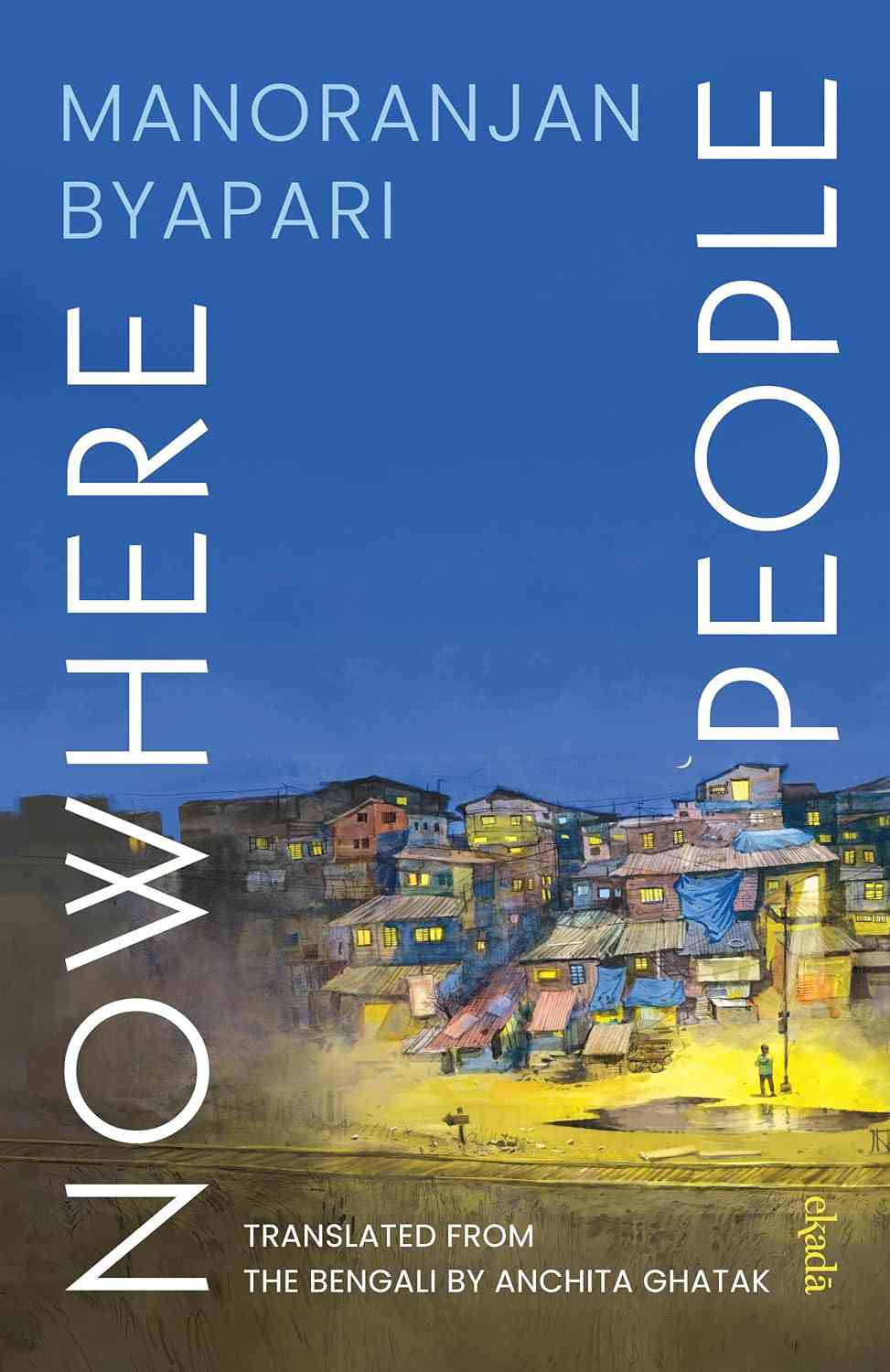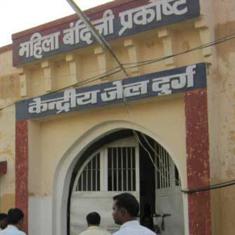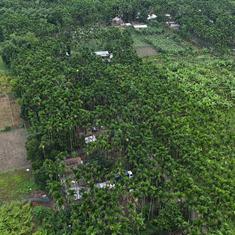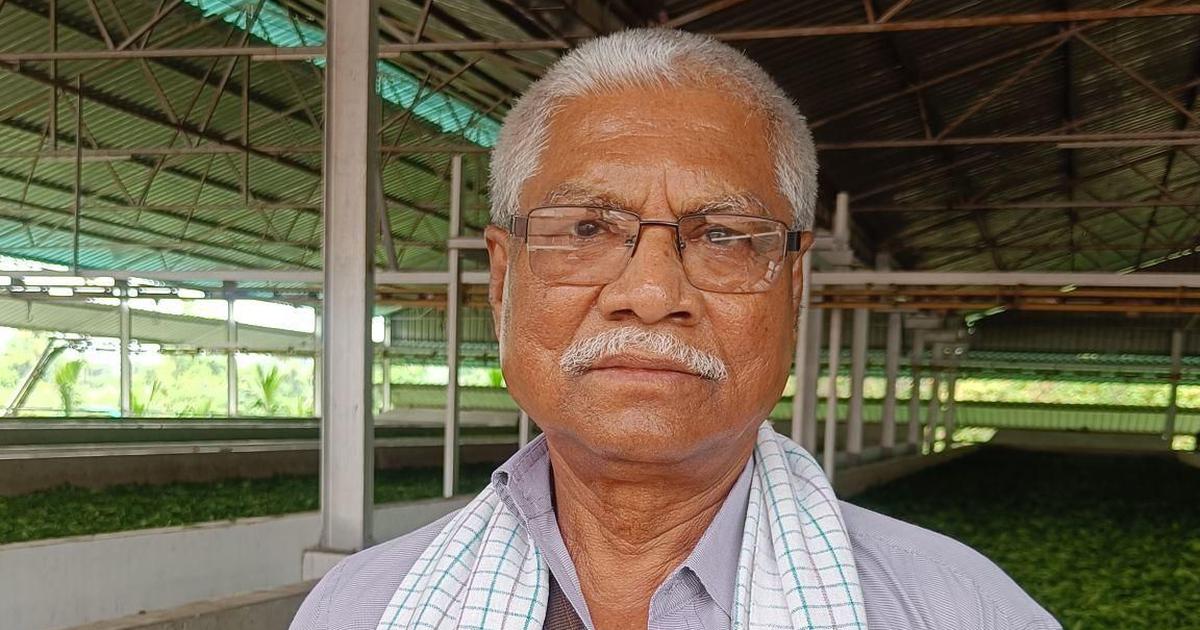“Hey, what’s your name?”
They were drinking tea in a tiny shop that had far too many customers. The narrow bench didn’t have space for everyone and so, many people hurriedly sipped their tea, standing.
The eastern sky was yet to turn red. The surroundings were wrapped in a thick fog. The wind bit into their bare skin, which felt like it was being cut into strips by the jagged ends of a sharp saw.
No living beings except humans eat so early in the day. Cows, buffaloes, goats, sheep, ducks, chicken had surely not touched their food yet. They were all in their shelters.
But humans, they are always hungry. They have many different kinds of hunger. They are never satisfied with things that only fill their bellies, they need different kinds of food. Wherever you looked, you were sure to find people hunting for food. They were hungry in proportion to their skills, capabilities and power. Some people were satisfied with a simple meal of dal and rice but some remained dissatisfied even after they had swallowed mines, rivers, forests and land.
These people wearing dirty, torn clothes, with gunk-filled eyes and sunken cheeks covered in a mass of stubble, chomping on bread in this half-light – one look at them and you knew they were daily-wage labourers. They looked like their employers had put them through a sugarcane wringer and extracted every bit of juice from them. It was difficult to withstand that merciless wringing on an empty stomach. Therefore, before they began work, they prepared themselves for the day’s onslaught. Thousands of people from the villages of Bengal congregate at Bagha Jatin Crossing every morning in search of work. As a fall-out of Partition, many people had crossed the border and come to the west; the affluent among them were able to exercise their power and influence, grab land and establish some colonies in this area. Their flimsy houses fenced in with matting were now being transformed into multi-storeyed apartment buildings. The construction of these dwellings required many labourers.
“What’s up? I asked your name. Why aren’t you telling me your name?” The newly arrived young man stood holding his last crumb of bread. In his glass lay the last sip of tea. His eyes held supreme indifference. It was like he didn’t want to hear any more of the world’s wisdom. All of that was pointless and unnecessary.
“I don’t have a name,” he said.
“What,” exclaimed Joga.
“Is it possible for a person to not have a name?”
“Why not?” he asked. “I don’t have a name.”
“Even the parents who aren’t able to give their children anything come up with a lovely name for them,” said Joga.
“I don’t have a mother or a father.”
“You perhaps don’t have them any more, but surely you did once?”
“I never had any.”
“How can that be? How did you arrive in this world if you had no parents?”
“I don’t know,” he said as he put his glass down with a thud. “As far back as my memory goes, I have been all alone. I have nothing, no one.”
“Well, you’ve lived this long, people must’ve called you something, didn’t they?”
“Well, in each place people addressed me any way they liked. I didn’t like those names and so haven’t cared to remember them. Is there any point in burdening myself with a name that doesn’t say who I am?”
Joga took out a beedi from the fold in his lungi and put it to his lips.
“Here, take one,” he said, handing the boy another beedi.
“I don’t smoke,” said the newcomer.
“I didn’t either, earlier,” replied Joga. “Now I smoke beedis and cigarettes, chew khaini and drink alcohol. You will also need all of these someday. So why delay? Begin now.”
The newcomer stretched out his hand for the beedi.
“Well, you are truly unfortunate,” said Joga, after lighting his beedi, pulling a long drag and blowing out clouds of smoke. “You have absolutely nothing – not even a name! A person without a name has nothing. Unknown, uncared for. After all, a person is known by their name.”
“No, they’re not,” said the boy. “I knew a man called Raja. He used to roam the streets picking scraps of paper. Another fellow was called Juboraj, who drove a handcart – some crown prince, that! Why do such people have grand names? Why should a pauper be named Raja?”
“I see,” said Joga shaking his head. “I’m thinking of a name for you … something suitable.”
“What’s in a name?” said the young man wearily. “I’m here today; I don’t know where I’ll be tomorrow. Who knows what people there will call me.”
“You won’t go anywhere else,” said Joga with conviction. “You won’t be able to leave. If you’ve drunk the water at our station, then you’re stuck. There’s no way you can leave. I’ve seen so many like you. Look at me. Do you think I came here to stay? But have I been able to leave? I tried ten times. Made plans but failed.”
“I’ll be able to leave.”
“Yes, you will. The day four people carry you away on their shoulders. Not before. ‘Anyway, we will talk about your going away when you leave,” said Joga, thoughtfully.
“Why bother about that now? While you’re here, we’ll need to call you something … you need a name. I’m naming you for the time being. Nobo. Do you know what ‘Nobo’ means? Can you tell me? It means ‘new’. You are a new arrival here, so you’re Nobo. Do you like the name?”
“Who’s Nobo?” asked the boy after thinking for some time.
“What do you mean?”
“You obviously didn’t come up with the name just like that. There must’ve been someone in your life with this name. Who was he?” Joga sat quietly for some time. His eyes, which had been awake all night, filled with tears. “Nobo was my friend,” he said softly. “He died three-four years ago.”
On their way out of the station, “Nobo” had run the whole way, pushing the rickshaw from behind. On the way back, he came as a passenger sitting in Joga’s rickshaw. There was a rickshaw repair shop right before the rickshaw stand. It had opened by then, and Joga pumped his rickshaw tyres full of air.
The eastern sky had reddened a bit. The round, golden sun had begun to inch its way up the sky. The branches of the banyan tree were coming alive with the chirping of birds that was gradually growing louder. At night, you never realised there were so many birds nesting on this tree. The fog had started melting away, but the north wind still raged strong.
They were drinking tea in Bhola Molla’s shop. Bhola was the owner but his employee, Basu, ran the shop. Basu had a male body but the mind of a woman. Unlike many others, he hadn’t had to beg on the streets because Bhola had taken him under his wing. He had built this shack and given Basu some capital. “After the day’s sales are over, take what you need and give me the rest,” Bhola had said.
“What made you come here?” Joga asked the newcomer after a brief silence. “Why did you choose our station over so many other places in the world? Are you looking for work?”
“I didn’t think very much,” said the newly christened Nobo. “I saw your station from the train and I got off – that’s it. I’ll stay as long as it suits me. If it doesn’t, I’ll leave. Humans are rootless by nature and have itchy feet. They don’t have roots like large trees. They fly wherever they get food for their bellies and minds. And then they build nests. That’s why you find people from one end of the earth at another end. And then they might fly away again. Anyway, no point thinking about things that are hidden firmly in the womb of the past.”

Excited with permission from Nowhere People, Manoranjan Byapari, translated from the Bengali by Anchita Ghatak, Ekada/Westland.










